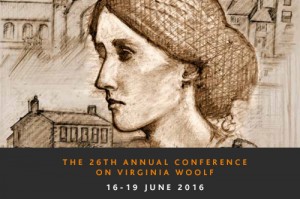 Virginia Woolf and Heritage
Virginia Woolf and HeritageThe 26th Annual Conference on Virginia Woolf
Leeds Trinity University, UK – 16-19 June 2016
Plenary Speakers: David Bradshaw, Laura Marcus, Suzanne Raitt
Plenary dialogue: Marion Dell and Jean Mills
Virginia Woolf was deeply interested in the past – whether literary, intellectual, cultural, political or social – and her writings interrogate it repeatedly. She was also a great tourist and explorer of heritage sites in England and abroad. As the first Annual Virginia Woolf Conference to be hosted in England for 10 years, and located in Yorkshire, an area rich in cultural links for Woolf (not least the Brontë Parsonage at Haworth, the subject of her first published article), this conference will explore how Woolf engaged with heritage, how she understood and represented it, and how she has been represented by the heritage industry.
Papers are invited on topics including (but not limited to):
Woolf’s representations and constructions of the past and her responses to her own heritage, such as:
- intellectual traditions and the history of ideas
- feminist readings of history
- queer and lesbian histories
- the literary past
- family histories
- her responses to the Victorian and/or Edwardian eras
- Englishness and national identity
Woolf’s experiences of the heritage industry, for example: her use of libraries, museums, art galleries, authors’ houses, artists’ houses, stately homes, gardens, London’s heritage sites, and tourist sites in Britain and abroad.
Ways in which Woolf has been represented and/or appropriated by the heritage industry and the creative and cultural industries, for example in:
- virtual and physical exhibitions and digital archives
- libraries, archives and collections
- plaques, memorials, and statues
- National Trust properties and other sites, including Monk’s House, Knole, and Talland House
- film, television, radio, poetry and fiction, theatre, dance, multimedia and performance
Woolf’s legacy to future generations in a wide range of cultural settings. This may include approaches from translation studies, reception history, comparative literature, editorial scholarship, pedagogy and literary theory.
For individual papers, send a 250-word proposal. For panels of three or four people, please send a proposed panel title and a 250-word proposal for each paper.
Please e-mail the proposal in a Word document to woolf2016@leedstrinity.ac.uk by 25th January 2016. Proposals should be anonymous, but please provide names, affiliations and contact details for speaker(s) in the e-mail message.